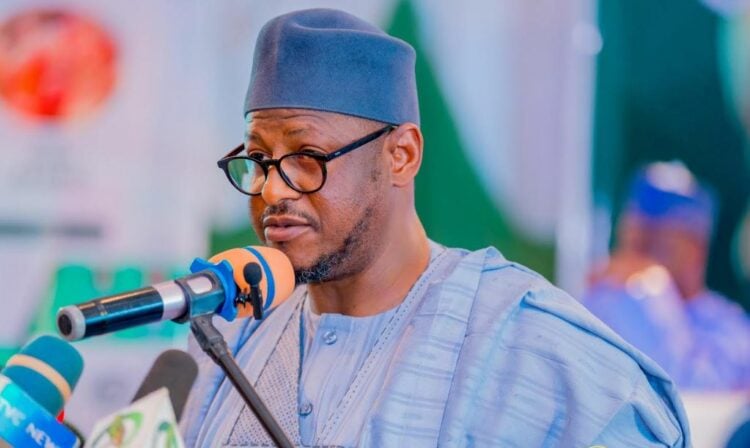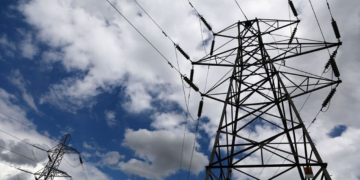Governor Dikko Umaru Radda has launched a peace and resilience initiative aimed at tackling insecurity, displacement, and economic hardship in Katsina and Zamfara states.
The project, titled, “Conflict Prevention and Crisis Response and Resilience (CPCRR),” is funded by the EU with €5.15 million over 18 months and will be implemented in partnership with the International Organisation for Migration (IOM), the Centre for Democracy and Development (CDD), and other agencies.
Governor Radda, speaking at the official flag-off in Katsina, described the project as a turning point for communities ravaged by banditry and conflict.
He said the programme would move the state from a cycle of trauma to recovery, fear to safety, and despair to hope.
“Our vision is a Katsina where peace is not just the absence of conflict, but the presence of justice, opportunity, and inclusion,” the governor declared.
He acknowledged the devastating impact of violence on schools, farms, and markets across frontline local governments, stressing that the crises are interconnected and demand holistic solutions.
Radda announced the creation of a State Peace and Security Committee to oversee the initiative, monitor progress, and ensure alignment with the state’s development priorities.
He urged traditional rulers, religious leaders, youth, and women to serve as agents of peace and reconciliation, while commending the bravery of security agencies.
On his part, the European Union Ambassador to Nigeria, Granter Miglot who represented the EU at the launch, said the Union’s support reflects its commitment to stability, resilience, and inclusive development in northern Nigeria.
He emphasized that peace cannot be imposed from outside but must be community-led, and that the EU’s role is to empower local people to take ownership of solutions.
“This partnership is built on trust and shared responsibility. Our investment here is a vote of confidence in Katsina’s leadership and the resilience of its people,” the envoy said.
The EU representative stressed that the programme also prioritizes the inclusion of marginalized groups, particularly women, youth, and persons with disabilities, to ensure no one is left behind.
He called on all stakeholders, government, civil society, traditional rulers, and security agencies to sustain the momentum and guard against duplication of efforts.
Earlier, the programme manager Peace Building and Conflict Resolution, IOM, Kutumbakana Jean Hanesi, explained that the CPCRR project will focus on three key pillars: peacebuilding and conflict mitigation, livelihood recovery, and governance and institutional strengthening.
Planned interventions include community dialogue platforms, reconciliation initiatives, vocational training for 500 youth and women, establishment of savings groups, and promotion of climate-smart agricultural practices.
Adding that the project will also provide essential services such as schools, water facilities, and health centers, while integrating mental health and psychosocial support for victims of violence.
Governor Radda concluded by thanking the EU and partners for their confidence and support, assuring that his administration is fully committed to matching resources and ensuring the project’s sustainability beyond its 18-month lifespan.
“This is not just about stopping violence,” he said. “It is about preventing it before it starts, healing trauma, and creating the foundations for lasting peace.”
The launch was attended by senior government officials, representatives of civil society, traditional leaders, and international partners, who all pledged to work together to consolidate peace and stability in Katsina and the wider northwest.











